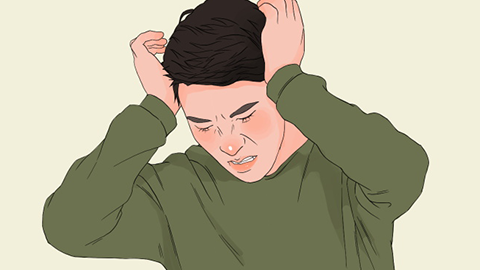What are the symptoms of tuberculous meningitis in adults?
Generally, adult tuberculous meningitis is a disease caused by Mycobacterium tuberculosis invading the meninges. Symptoms mainly involve the nervous system and general malaise, primarily including headache, fever, neurological dysfunction, symptoms related to increased intracranial pressure, and changes in mental status. A detailed analysis is as follows:

1. Headache: Adult patients often experience persistent headaches. Initially, the headache may present as a dull or distending pain, with an不定 location. As the condition progresses, the pain intensifies and becomes severe, especially noticeable in the morning or during coughing or bending over. Severe headaches can affect sleep quality, leading to fatigue and difficulty concentrating during daytime.
2. Fever: Patients typically exhibit low-grade or moderate fever, with temperatures ranging between 37.5°C and 38.5°C. Fever often rises in the afternoon or at night, slightly decreasing in the morning. The effect of common antipyretic medications is generally poor. Fever symptoms may persist for several weeks.
3. Neurological dysfunction: Some patients may develop motor impairments, such as unilateral limb weakness and unsteady gait. In severe cases, limb paralysis might occur, affecting daily movement and activities. Some patients may also experience language disorders, manifested as slurred speech and difficulty in verbal expression.
4. Symptoms related to increased intracranial pressure: In addition to headache, elevated intracranial pressure can cause projectile vomiting. The vomitus is typically gastric contents and is not clearly associated with eating; the frequency of vomiting increases as the condition worsens. Some patients may develop papilledema, which can be detected through fundoscopic examination.
5. Changes in mental status: In the early stages, patients may experience emotional fluctuations, such as irritability and anxiety. As the disease progresses, symptoms may include mental depression, drowsiness, and delayed response to external stimuli. In severe cases, disturbances of consciousness may occur, presenting as confusion, delirium, or even coma.
Adults experiencing the aforementioned symptoms should promptly stop high-intensity work and activities, maintain quiet rest, and avoid fatigue that might exacerbate the condition. It is also important to replenish fluids and nutrition, choose easily digestible foods, maintain basic body metabolism, and provide a favorable physical condition for subsequent examinations and treatments.




